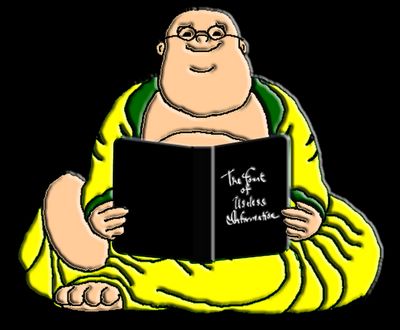I've gotten a bit behind on a few things here. Specifically, on my book reviews. According to my not so recently updated sidebar, I'm in the middle of reading Bobos in Paradise by David Brooks, but I finished that quite some time ago (nevermind that, it has now been updated). I'll try to keep up in the future, but let's be serious; I probably won't. However, with that in mind let's go over a few books I have read recently, but not so recently I can give them each a full post.
Bobos in Paradise by David Brooks:
First, let's deal with the obvious question. What is a bobo? Bobo is simply the author's term for a specific class of people. The name, like the class of people under discussion, is a combination of bourgeois and bohemian. These are the people who share some values of both of these formerly mutually exclusive groups. Brooks does a wonderful job of explaining this group while at the same time lovingly skewering them for their contradictions and idiosyncrasies (he does make sure to point out that he is a part of this group as well). It is an interesting study in class evolution, written in a way that will keep the reader amused as well as involved.
Everything Bad Is Good For You by Stephen Johnson:
Your television is rotting your brain. The video games your children play are wasting their lives. Sound familiar? Of course, they do. These are facts that everyone knows. According to Stephen Johnson, however, everyone is wrong. Johnson goes through various examples and produces substantial evidence to show that in fact, watching television now versus watching television several decades ago is much better for your brain (as with video games and other forms of entertainment as well). As the complexities of our entertainment have increased, so has the exercise given to our cognitive abilities during the activities. They may not be teaching us math, or history, but they are teaching us how to think and how to make sense of complex problems. Johnson discusses the oft stated "benefit" of gaming as an increase in hand-eye coordination and points out that while useful it is hardly the only benefit. He compares this to saying that reading is useful because it will improve your spelling. Sure, it's probably true, but it is selling the process short to claim that it is the only benefit. You may not agree with all of Johnson's points, but it is hard to argue with the basic premise after reading the book. He isn't suggesting that people spend all of their time in front of the TV or playing Final Fantasy, but rather is saying that in appropriate quantities, these things can help hone one of the more important skills you can have.
Do You Speak American by Robert MacNeil and William Cran:
The subject of language in the United States is often a touchy one. Some people believe that the strict rules of grammar must be enforced under all circumstances. Others believe that language is living, otherwise we wouldn't have different versions of English spoken in various countries around the world. Some people believe that the use of English is "under attack" by the increasing Spanish-speaking population of the US and by the "uneducated" speech of people in various parts of the country. MacNeil and Cran tackle all of these questions and provide fairly insightful answers. Some of the answers are not surprising: Of course language changes over time, distance and any other factor that can separate groups of people. Others go a little deeper: A more useful approach to getting people to write and speak in "proper" American English is to realize that, like it or not, these are different dialects of the language that are being spoken in different parts of the country and they should be treated as such. To put a child in school and tell him that only stupid people say "ain't" or practice vowel fronting or remove "R"s from the ends of words is to tell the child that not only he, but everyone he knows and cares about it stupid. To accept that dialect as it is and teach the child there is another dialect which should be used to better communicate with people outside his familiar group can be much more useful. It's not the most enthralling book I have ever read, but it is certainly worth reading and does bring up some fascinating points.
Until later...


1 comment:
At first glance, I thought I saw "Hobos in Paradise" and that made me wonder.
Would there be hobos in paradise?
Post a Comment